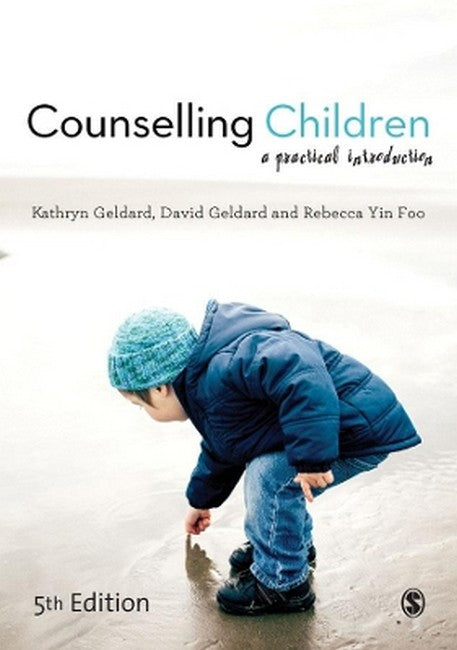Dr Kathryn Geldard is now retired from clinical practice. She continues to conduct training workshops for counsellors and organisations and facilitate professional development supervision groups. Her academic career as senior lecturer in counselling at Queensland University of Technology and in the faculty of Arts and Business at the University of the Sunshine Coast (USC), Australia includes programme leadership of the Counselling programme as well as development of the postgraduate Master of Counselling degrees. She is the author of a several textbooks founded on her extensive clinical counselling background with children, young people and their families. David Geldard had extensive experience in working as a counselling psychologist with troubled children and their families. He worked in mental health and community health settings, and in private practice. Rebecca Yin Foo is an Educational and Developmental Psychologist who is experienced in providing psychological support for children with developmental disabilities and their families at the Cerebral Palsy League. Her work has led her to take a high level of practical and academic interest in ways of working with children to promote optimal positive outcomes. She currently works in private practice in Brisbane, Australia. Prior to obtaining her honours degree in Psychology and Master's degree in Educational and Developmental Psychology she completed a Bachelor of Medical Engineering. She has published a number of journal articles and presented conference papers nationally and internationally in relation to her studies in both Engineering and Psychology. She is the third author of the book, Counselling Children: A Practical Introduction.
Request Academic Copy
Please copy the ISBN for submitting review copy form
Description
Introduction to the fifth edition Part 1 Counselling Children 1. Goals for counselling children 2. The child-counsellor relationship 3. Ethical considerations when counselling children 4. Attributes of a counsellor for children Part 2 Practice Frameworks 5. Historical background and contemporary ideas about counselling children 6. The process of child therapy 7. The child's internal processes of therapeutic change 8. Sequentially Planned Integrative Counselling for Children (the SPICC model) 9. Counselling children in the context of family therapy 10. Counselling children in groups Part 3 Child Counselling Skills 11. Observation 12. Active listening 13. Helping the child to tell their story and get in touch with strong emotions 14. Dealing with resistance and transference 15. Dealing with self-concept and self-destructive beliefs 16. Actively facilitating change 17. Termination of counselling 18. Skills for counselling children in groups Part 4 Play Therapy - Use of Media and Activities 19. The play therapy room 20. The evidence-base for play therapy and counselling children 21. Selecting the appropriate media or activity 22. The use of miniature animals 23. Sand-tray work 24. Working with clay 25. Drawing, painting, collage and construction 26. The imaginary journey 27. Books and stories 28. Puppets and soft toys 29. Imaginative pretend play 30. Games 31. Technology Part 5 The Use of Worksheets 32. Building self-esteem 33. Social skills training 34. Education in protective behaviours Part 6 In Conclusion
This book is first class. It is well written and engaging and contains a wealth of exercises and activities to use with children. I love this book. -- Sally Riggall Counselling Children has been an excellent resource to enhance the practice of psychotherapy with children since its first edition published in 1997. I first met the Geldards at their informative workshops in Brisbane in those early years, which thoroughly enhanced my work with children. Their published books were an added bonus. This fifth edition further supports the therapist with an addition of a Companion Website. It is a highly recommended resource, and one that I value, for every therapist working with children. -- Dianne O'Malley This book is a classic text for students and practitioners interested in learning more about working with children. It is easy to read and the examples given bring to life the real challenges faced in practice. At the end of each Chapter is a helpful key points box which is ideal for summarising the contents of each chapter. An essential text in the field of counselling and psychotherapy. -- Divine Charura The book follows a natural progression from the beginning of developing the initial relationship, through looking at different models of counselling, the skills necessary for working with children, to the use of different media - the use of play in all its various forms, visualisations, and the use of worksheets. The real value for money comes for me with the huge number of online resources, including videos and worksheets available via the use of a code given in the book. -- Lynn Martin * BACP *

